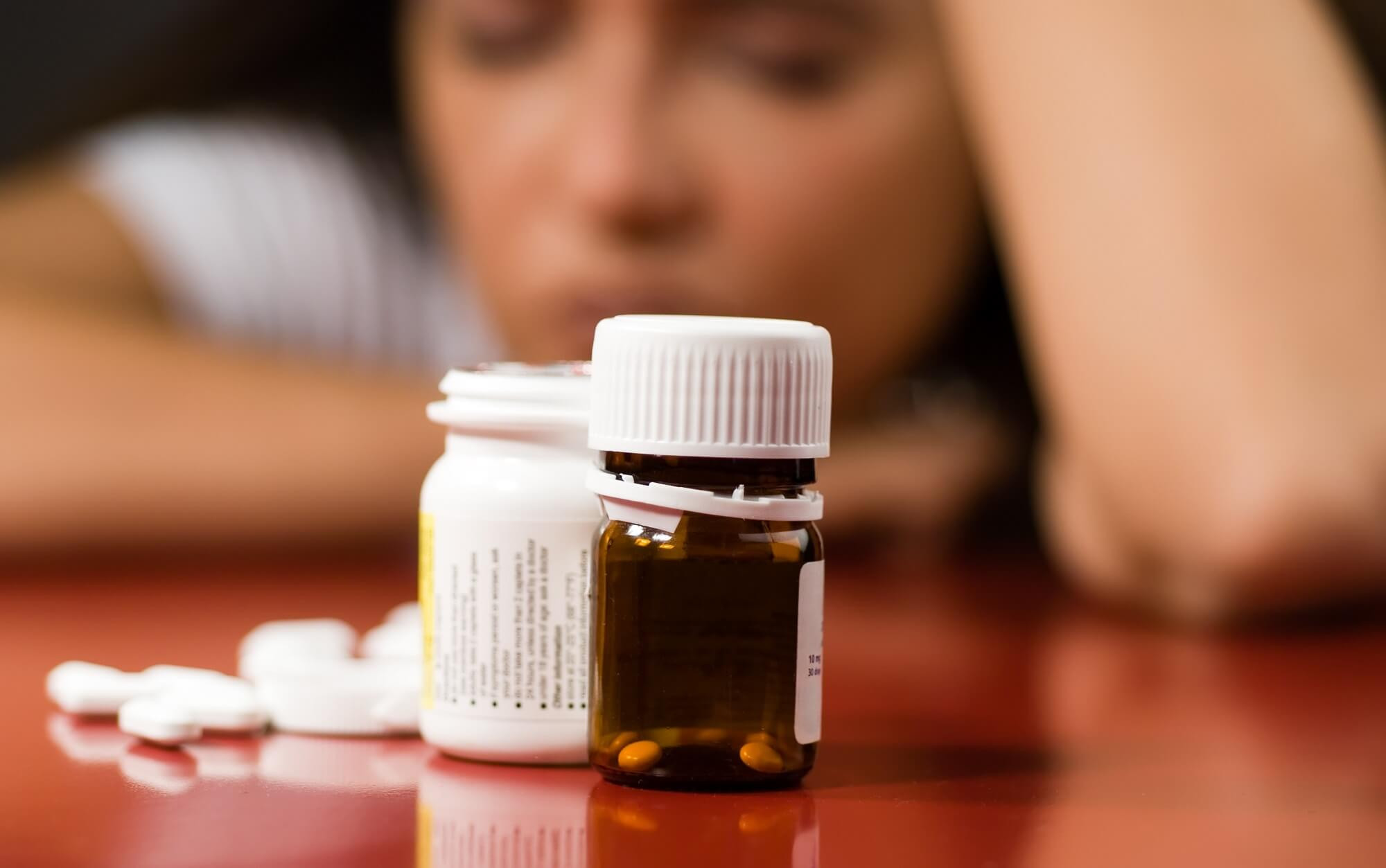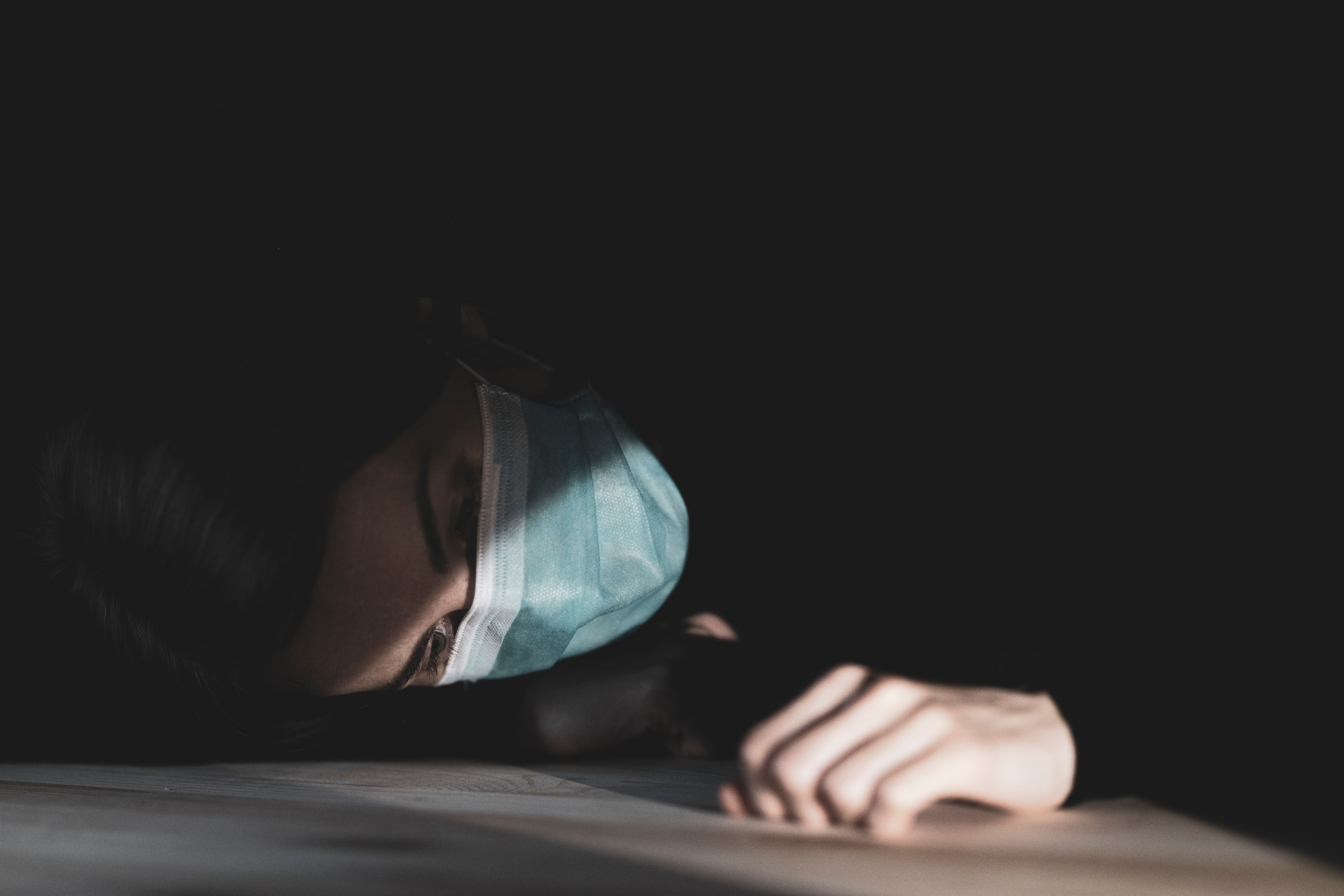Definisi
Gangguan campuran ansietas dan depresif (mixed anxiety-depressive disorder, MADD) merupakan suatu kondisi kejiwaan yang memiliki ciri cemas maupun depresi. Pada orang dengan gangguan ini, ciri cemas dan depresif sama besarnya, tidak ada yang lebih dominan. Selain itu, gangguan ini hanya dapat didiagnosis apabila kedua gejala tersebut tidak dapat menciptakan diagnosis secara terpisah. Jika keduanya sama-sama cukup untuk didiagnosis sendiri-sendiri, diagnosis gangguan cemas dan depresif akan dipisahkan.
Penyebab
Gangguan campuran ansietas dan depresif belum dipahami secara utuh, namun pada umumnya melibatkan komponen biologis, psikologis, dan sosial. Komponen biologis dapat berupa senyawa kimiawi pada otak (neurotransmiter) dan hormon. Neurotransmiter memiliki berbagai peran dalam mengantarkan pesan di otak, dan ketidaksesuaian jumlah neurotransmiter dapat ditemukan pada gangguan cemas maupun gangguan depresif. Sementara itu, perubahan hormon dapat memengaruhi mood atau suasana perasaan seseorang, misalnya pada kehamilan dan menopause, yang dapat memicu depresi pada seseorang.
Faktor psikologis dapat berupa kepribadian seseorang. Orang-orang dengan kepribadian tertentu seperti rendahnya rasa percaya diri, terlalu tergantung pada orang lain, pesimis, dan senang mengkritik diri sendiri cenderung lebih rentan terhadap gangguan ini.
Faktor sosial dapat berupa pengalaman masa kecil yang menyebabkan trauma atau sifat-sifat yang ditanamkan saat tumbuh kembang.
Gangguan cemas sendiri juga dapat terkait dengan kondisi medis lainnya seperti penyakit jantung, diabetes, masalah tiroid, masalah pernapasan, penyalahgunaan zat, nyeri berkepanjangan, serta tumor/kanker.
Faktor Risiko
Faktor-faktor yang dapat meningkatkan risiko gangguan campuran ansietas dan depresif dapat berupa:
- Pengalaman traumatis baik masa kecil atau dewasa, seperti kekerasan fisik atau seksual, kematian atau kehilangan sosok yang dicintai, hubungan yang tidak sehat, serta masalah keuangan. Stres dan trauma ini juga dapat menumpuk sehingga menyebabkan cemas dan depresi
- Stres akibat penyakit, terutama penyakit kronik, seperti kanker, stroke, nyeri kronik, atau penyakit jantung. Stres ini dapat pula terjadi akibat pemikiran mengenai masa depan dan terapi
- Kepribadian tertentu seperti kurangnya rasa percaya diri, terlalu tergantung pada orang lain, pesimis, dan senang mengkritik diri sendiri meningkatkan risiko kondisi ini
- Adanya riwayat gangguan jiwa lainnya seperti gangguan depresi, gangguan cemas, gangguan stres pascatrauma, gangguan makan, dan sebagainya
- Memiliki keluarga dengan riwayat kondisi serupa atau gangguan jiwa lainnya seperti depresi, bipolar, cemas, kecanduan alkohol, atau mengakhiri hidup
- Penyalahgunaan zat seperti alkohol, rokok, serta narkotika, psikotropika, dan zat adiktif (NAPZA)
- Memiliki orientasi seksual yang berbeda (lesbian, gay, biseksual), transgender, mengalami variasi perkembangan organ seksual yang berbeda sehingga sulit dibedakan antara laki-laki atau perempuan, terutama pada lingkungan yang tidak mendukung
Gejala
Pada gangguan campuran ansietas dan depresif, gejala gangguan cemas dan depresi muncul keduanya dan sama besarnya, namun tidak cukup untuk didiagnosis sendiri-sendiri. Gejala ansietas atau gangguan cemas dapat berupa:
- Merasa grogi, gelisah, atau tegang
- Merasa seperti mendekati bahaya, panik, atau kiamat
- Kenaikan laju denyut jantung
- Bernapas cepat
- Berkeringat dingin
- Gemetar
- Merasa lemah atau lelah
- Sulit berkonsentrasi atau berpikir tentang hal selain yang dikhawatirkan
- Sulit tidur
- Mengalami gejala pencernaan seperti mual atau diare
- Sulit mengontrol kekhawatiran
- Berusaha keras untuk menghindari hal-hal yang memicu cemas
Sementara itu, gejala depresif dapat berupa:
- Merasa sedih, kosong, tidak ada harapan
- Mengalami ledakan amarah, kesal, atau frustrasi terhadap hal-hal kecil
- Kehilangan minat atau kesenangan dalam melakukan hal-hal yang biasanya disenangi
- Gangguan tidur, baik sulit tidur maupun kelebihan tidur
- Merasa lelah dan kurang energi, sehingga tugas-tugas ringan pun membutuhkan usaha keras
- Masalah nafsu makan, baik nafsu makan rendah dan berat badan menurun atau nafsu makan terlalu tinggi dan berat badan naik
- Gelisah
- Berpikir, berbicara, dan bergerak lambat
- Merasa tidak berarti dan bersalah, fokus pada kesalahan masa lalu dan menyalahkan diri sendiri
- Kesulitan berpikir, berkonsentrasi, membuat keputusan, dan mengingat sesuatu
- Seringkali berpikir tentang kematian, keinginan mengakhiri hidup, serta berusaha mengakhiri hidup
- Mengalami gejala fisik yang sulit dijelaskan, seperti nyeri punggung atau sakit kepala
Gejala-gejala cemas dan depresi memiliki banyak kemiripan, dan keberadaan keduanya dapat saling memperparah satu sama lain. Gejala lain yang ada pada kedua gangguan tersebut adalah ruminasi, atau pemikiran berulang mengenai hal-hal yang menyedihkan, menyeramkan, atau negatif. Kecemasan menyebabkan sulitnya berhenti memikirkan kemungkinan terburuk yang dapat terjadi, sementara depresi menyebabkan sulitnya berhenti menyalahkan diri sendiri, bahkan untuk hal-hal di luar kontrol diri.
Diagnosis
Diagnosis gangguan ini cukup sulit, karena membutuhkan informasi mendetail mengenai gejala-gejala dan kondisi-kondisi di atas. Bahkan, satu kali pertemuan seringkali tidak cukup untuk mendiagnosis kondisi ini secara pasti. Diagnosis hanya dapat dilakukan oleh tenaga kesehatan terlatih, minimal dokter umum, atau dapat pula ahli kesehatan jiwa seperti psikolog dan psikiater. Mendiagnosis dan menatalaksana diri sendiri sangat tidak disarankan karena adanya bias dalam memandang gejala diri sendiri dan bahaya bagi diri sendiri dan orang lain.
Pertama, Anda biasanya akan diminta untuk menceritakan keluhan Anda. Tenaga kesehatan dapat membantu Anda dengan memberikan pertanyaan seputar gejala, seperti lamanya gejala tersebut ada serta pengaruhnya ke dalam aktivitas sehari-hari Anda. Di sini, penjelasan yang terbuka dan jujur sangat membantu tenaga kesehatan dalam memahami kondisi Anda. Tenaga kesehatan yang baik akan mendengarkan Anda tanpa menghakimi atau melarang Anda untuk merasakan sesuatu. Mereka akan mendengarkan keluhan Anda dengan penuh perhatian dan memberikan dukungan pada Anda.
Untuk membantu diagnosis pasti gangguan ini, tenaga kesehatan dapat memintakan pemeriksaan laboratorium untuk menyingkirkan kemungkinan kondisi yang dapat menyebabkan gejala-gejala cemas dan depresif.
Tata Laksana
Tata laksana gangguan campuran ansietas dan depresif melibatkan psikoterapi dan terapi obat. Psikoterapi merupakan terapi yang dilakukan dengan berdiskusi dan berbicara dengan terapis Anda, di antaranya sebagai berikut:
- Terapi kognitif perilaku (cognitive behavioral therapy, CBT), yang dapat membantu Anda menyesuaikan pikiran dan perilaku Anda terhadap suatu masalah
- Terapi interpersonal, yang dapat membantu Anda berkomunikasi lebih baik
- Terapi pemecahan masalah, yang dapat membantu Anda menangani gejala Anda
Jika Anda diterapi oleh seorang dokter atau psikiater, Anda mungkin akan mendapatkan obat-obatan antidepresan dan/atau anticemas untuk mengontrol gejala Anda. Perlu diingat bahwa obat-obatan ini harus dikonsumsi sesuai dengan arahan dokter, karena dapat menyebabkan efek samping yang tidak diinginkan. Beberapa jenis obat bahkan dapat menyebabkan kecanduan apabila dikonsumsi berlebihan.
Beberapa hal lainnya yang dapat Anda lakukan sendiri adalah:
- Olahraga. Olahraga, terutama olahraga di luar rumah dapat meningkatkan mood dengan mengeluarkan hormon endorfin yang terkait dengan kebahagiaan. Sebaiknya, olahraga ini dilakukan secara rutin 3-5 kali seminggu
- Bersantai, relaksasi, dan meditasi. Anda mungkin berpikir untuk tetap produktif setiap saat, namun, pada kenyataannya, Anda juga butuh bersantai. Bersantai dapat dilakukan dengan menonton TV, mendengarkan musik, berwisata alam, dan sebagainya. Selain itu, Anda juga dapat mencoba yoga, meditasi, dan latihan bernapas.
- Menyeimbangkan makan. Gangguan cemas dan depresif dapat menyebabkan peningkatan konsumsi karbohidrat. Tidak hanya itu, kafein, gula, dan makanan berpengawet dapat memperburuk gejala cemas dan depresif. Anda dapat mengonsumsi diet seimbang dengan protein rendah, sayuran, dan buah-buahan untuk memperbaiki gizi.
- Merapikan lingkungan Anda. Anda dapat mulai dari merapikan kamar, surel, serta lemari baju. Anda tidak perlu melakukan semuanya bersamaan, satu per satu saja sudah cukup
- Mengasah kreativitas. Jika Anda senang menyanyi, bermain musik, membuat puisi, fotografi, mendesain, dan sebagainya, Anda dapat melakukan hal-hal ini untuk bersantai
Komplikasi
Komplikasi gangguan campuran ansietas dan depresif dapat berupa gabungan dari komplikasi gangguan cemas dan depresi itu sendiri, misalnya:
- Kelebihan berat badan
- Risiko penyakit jantung yang lebih tinggi
- Penyalahgunaan zat
- Menarik diri dari orang lain
- Sulit beraktivitas sehari-hari
- Menyakiti diri sendiri
- Kematian akibat mengakhiri hidup atau kondisi medis lainnya.
Pencegahan
Gangguan campuran ansietas dan depresi sulit dicegah karena seringkali muncul tanpa diketahui, namun beberapa hal ini dapat dilakukan untuk membantu pencegahan:
- Cari pertolongan sesegera mungkin
- Aktif dalam berkegiatan bersama orang lain dalam lingkungan yang sehat
- Bercerita pada keluarga, teman dekat, atau orang lain yang dicintai
- Hindari penggunaan zat-zat terlarang, alkohol, dan rokok
Kapan harus ke dokter?
Jika Anda merasa suasana perasaan Anda selalu buruk, baik tanpa penyebab atau dengan penyebab, atau Anda merasa cemas terus-menerus, Anda dapat berkonsultasi pada dokter. Dokter di puskesmas dapat merujuk Anda ke psikolog atau psikiater terdekat untuk membantu diagnosis dan tata laksana kondisi Anda.
- dr Nadia Opmalina
Anxiety disorders - Symptoms and causes. (2018). Retrieved 8 February 2022, from https://www.mayoclinic.org/diseases-conditions/anxiety/symptoms-causes/syc-20350961
Begum, J. (2021). What to Do When Depression and Anxiety Mix. Retrieved 8 February 2022, from https://www.webmd.com/depression/features/anxiety-depression-mix
Depression (major depressive disorder) - Symptoms and causes. (2018). Retrieved 8 February 2022, from https://www.mayoclinic.org/diseases-conditions/depression/symptoms-causes/syc-20356007
K., Raypole, C., & Wade, D. (2022). Depression and Anxiety: How to Cope with Both, Differences, and More. Retrieved 8 February 2022, from https://www.healthline.com/health/mental-health/depression-and-anxiety












